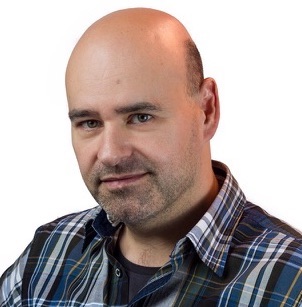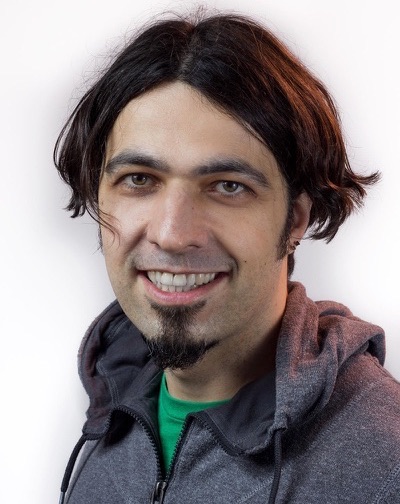 When Microchip Technology decided to publish their MOST Linux Driver to the Linux community, they had no idea how personally connected they’d become in the process. But just 7 months after joining the Linux Foundation as a Corporate Member and receiving one-on-one mentoring from kernel maintainer Greg Kroah-Hartman, the Microchip team had their initial code reworked. Shortly thereafter, they had their driver code in the Linux kernel mainline accepted. And they were on a first-name basis with one of the top kernel developers in the world.
When Microchip Technology decided to publish their MOST Linux Driver to the Linux community, they had no idea how personally connected they’d become in the process. But just 7 months after joining the Linux Foundation as a Corporate Member and receiving one-on-one mentoring from kernel maintainer Greg Kroah-Hartman, the Microchip team had their initial code reworked. Shortly thereafter, they had their driver code in the Linux kernel mainline accepted. And they were on a first-name basis with one of the top kernel developers in the world.
“We never expected all this to happen this fast,” says Microchip Project Manager Michael Fabry. “Our intention with joining the Automotive Grade Linux group was to better serve our customers with a Linux driver that could power the multimedia systems in tomorrow’s cars.” So when Linux Foundation Automotive General Manager Dan Cauchy suggested they push their MOST Linux Driver code up to the mainline kernel, Fabry’s team was skeptical.
“We thought we would have a really hard time,” says Christian Gromm, principal software engineer at Microchip. “We were familiar with developing Linux kernel drivers, but didn’t have the experience to get code upstream.”
Meeting a Linux mastermind
That’s where Greg Kroah-Hartman came in. As part of the Linux Foundation Technical Advisory Board (TAB) mentoring program, Kroah-Hartman and other TAB members routinely mentor new Linux Foundation members. But when Cauchy offered to connect the Microchip team directly to the Linux kernel guru himself, Fabry approached the offer with a mix of cautious optimism and outright doubt. “We said, of course, we’d love an introduction. But we were unsure whether this promise would come true.”
One email and conference call later, the connection was made. Greg Kroah-Hartman had become the Microchip team’s guide to all things Linux—and their personal connection to the kernel development community. “We were amazed,” says Gromm. “We were looking forward to actually getting to know this person we’d only known through the media.”
A direct line to the mainline
 Fabry and Gromm had heard from other companies who’d tried to get their code in the mainline kernel before. It hadn’t worked out. Because they’d submitted without knowing the ins and outs of the kernel community, their code was rejected. And their mainline dreams got pushed back to the sideline. Things went differently for Microchip. Kroah-Hartman reviewed their code every step of the way and helped them work through small-but-vital details.
Fabry and Gromm had heard from other companies who’d tried to get their code in the mainline kernel before. It hadn’t worked out. Because they’d submitted without knowing the ins and outs of the kernel community, their code was rejected. And their mainline dreams got pushed back to the sideline. Things went differently for Microchip. Kroah-Hartman reviewed their code every step of the way and helped them work through small-but-vital details.
When responding to incoming patch requests, Fabry and Gromm made sure to copy Kroah-Hartman on their emails. “When you have Greg Kroah-Hartman cc’ed on your kernel submission, people pay attention,” says Fabry. As feedback poured in from the kernel community, Kroah-Hartman helped the Microchip team navigate divergent opinions and comments, enabling them to refine their code with confidence. “It’s great to get all the input,” says Gromm. “But without having much experience with the Linux driver project’s mailing list, it’s hard to know what to accept and what to reject. Greg helped us make informed judgments, and we were welcomed into the community.”
Driving the auto industry forward
With their driver accepted into the Linux kernel mainline, Microchip has enabled more manufacturers to use their MOST technology—without installing proprietary drivers. And with the Linux kernel community reviewing their code, the quality of their product just keeps getting better. “Experienced people from around the world are sending in patches,” says Gromm. “We have this huge testing group now that we never could have had on our own as a single manufacturer.”
These days, Gromm and Fabry leverage the power of many in the kernel community to continually refine Microchip’s MOST Linux Driver. But they steadfastly believe it was the power of one that made it all possible in the first place—specifically the guidance they received from Kroah-Hartman through the Linux Foundation TAB mentoring program. “We couldn’t have done this so easily without Greg,” says Fabry. “He made the whole process quick, direct and effortless.” Plus, adds Gromm, he made it fun. “Greg is always straightforward, and there are never any politics involved. Sure he’s a VIP, but he’s also just a really nice guy.”
Join us today and find your own Linux mentor.
Become a Corporate Member of the Linux Foundation and gain access to our new member mentoring program, exclusive networking opportunities, members-only events, and much more.



